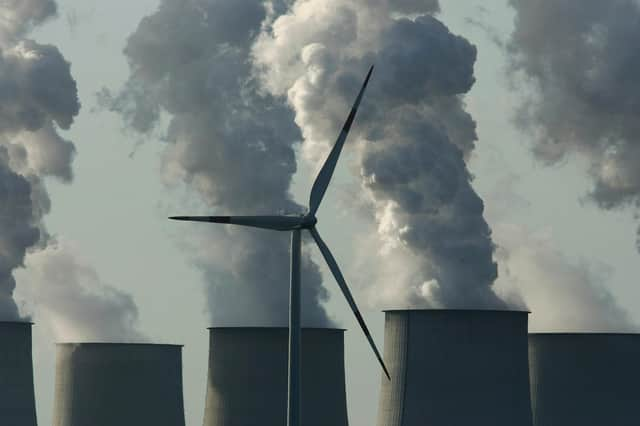Climate change: Why politicians should be wary of oil industry promises on carbon-neutral fossil fuels – Scotsman comment


So much so that, in the UK, there are now plans to produce fossil fuels on a carbon-neutral basis as a contribution to efforts to restrict global warming to 1.5 degrees Celsius.
This rather ironic strategy has the obvious problem that the main use of oil and gas is to burn it, which is very much carbon positive. The proposed solution, at least for power stations, is to use carbon-capture-and-storage technology to ensure no greenhouse gases are emitted.
Advertisement
Hide AdAdvertisement
Hide AdSo, problem solved? Unfortunately not, because the technology remains expensive, particularly when compared to the falling prices of electricity produced by wind and solar, so there are only a small number of commercial schemes in operation in the world.
The other problem is that oil industry credibility has been seriously damaged by its numerous past attempts to rubbish the scientific evidence about climate change in public, even when their own scientists were quietly in agreement with the general consensus.
An internal Exxon memo from as long ago as 1979 said: “The most widely held theory is that... the increase in atmospheric CO2 is due to fossil fuel combustion.” And in 1996, a peer-reviewed paper by Exxon scientists reported “the body of evidence... now points towards a discernable human influence on global climate”.
This track record leads some to suspect that the prospect of widespread carbon-capture-and-storage is simply a delaying tactic. It may have a role to play, but politicians need to be careful in case its promise turns out to be false.
A message from the Editor:
Thank you for reading this article. We're more reliant on your support than ever as the shift in consumer habits brought about by coronavirus impacts our advertisers.
If you haven't already, please consider supporting our trusted, fact-checked journalism by taking out a digital subscription.
Comments
Want to join the conversation? Please or to comment on this article.
